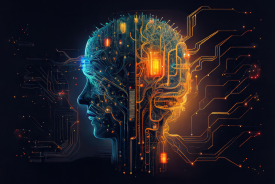A new study by UCLA researchers reveals that sleep apnea can cause structural changes in the brains of the people who suffer from it, Forbes reports.
In many people, sleep apnea causes daytime sleepiness, fatigue, memory lapses and in some cases, depression.
The study was published in The Journal of Sleep Research.
Sleep apnea may cause up to 30 disruptions in sleep per hour. Experts believe that such disruptions would lead to psychological tumult in our waking hours. However, experts are unclear as to what these disruptions are doing chemically in the brain.
"In previous studies, we've seen structural changes in the brain due to sleep apnea, but in this study we actually found substantial differences in these two chemicals that influence how the brain is working," said Paul Macey, the lead researcher on the study and an associate professor at the UCLA School of Nursing.
Sleep apnea narrows how much oxygen reaches the brain, which compromises the health of brain tissue for several hours.
The latest study shows that these effects are acute in the case of two brain chemicals: GABA (gamma-aminobutyric acid) and glutamate. GABA is a neurochemical brake that slows brain activity, while glutamate is a neural accelerator.
Apnea causes GABA levels to drop significantly and glutamate levels to increase well above normal
"It is rare to have this size of difference in biological measures," Macey added in a UCLA press release.
"We expected an increase in the glutamate, because it is a chemical that causes damage in high doses and we have already seen brain damage from sleep apnea. What we were surprised to see was the drop in GABA. That made us realize that there must be a reorganization of how the brain is working."
The present study may also help explain the link between apnea and depression, particularly in men, since both GABA and glutamate are linked to other neurotransmitters like serotonin and dopamine.
© 2026 University Herald, All rights reserved. Do not reproduce without permission.








